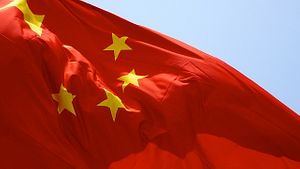As August approached, non-Chinese mainland media once again began to carefully follow the whereabouts of senior Chinese leaders, hoping to discern whether the annual secret meeting at the seaside resort town of Beidaihe in Hebei Province had begun.
The Beidaihe meeting has been traditionally regarded by China watchers at home and abroad as a significant conference that can change the track of China’s politics. China’s state media tends to refrain from reporting on it, meanwhile, international media watches carefully for signs of the gathering.
Mao Zedong, who disliked bureaucratic red tape, initiated the idea of having senior officials gather for summer vacation and meeting in an unofficial format at Beidaihe early in 1953. Due to its unofficial characteristic, this meeting can also provide retired top leaders a chance to speak their mind on national policies with current leaders.
Anonymous sources told Reuters that the latest Beidaihe meeting “was likely in early August.”
On August 8, Xinhua reported that Chinese Premier Li Keqiang had met with Maria Fernanda Espinosa Garces, the president-elect of the 73rd session of the United Nations General Assembly, in the afternoon at Beidaihe. This information “offered further evidence,” as Reuters put it, that the secretive Beidaihe meeting is indeed happening now.
Amid the trade war with the United States, a series of social and financial risks are also looming large domestically in China. Criticism directly targeting the foreign and domestic policies of current top leader has emerged despite fierce censorship. Rumors that China’s top leader would be condemned during the Beidaihe meeting spread like wildfire.
Perhaps in an attempt to snuff out those rumors, Chinese state media urged Chinese citizens to confront national difficulties with confidence.
Also on August 8, People’s Daily published a 4000-plus word article under the title “To create a beautiful life regardless of rain or wind” on its front page.
Recalling 70 years of development since the foundation of the People’s Republic of China, the article said that Chinese nationals were able to conquer various difficulties and create a beautiful life “under the leadership of the Chinese Communist Party.”
Yet, the article pointed out, “certain people, for the sake of their own personal interest, are now raising high the tariff barriers and waving around the stick of hegemonic power.” These people will only end up “lifting a stone to drop on their own feet,” the article said, without singling the United States out.
Admitting that “Today’s China is experiencing the wind and rain of development,” the article finally urged 1.3 billion Chinese nationals to “take your own path and do your own business” with confidence, faith and collective power.
It’s particularly worth noting that the article was attributed to “Xuan Yan (宣言),” which in Chinese means “declaration.” It is widely known in China as a pen name coined specially for China’s top propaganda authority, as “Xuan Yan” can also represent the abbreviation for “the speech of the propaganda organ.”
Hours after “Xuan Yan” announced its “declaration” on People’s Daily, Xinhua published a similar style commentary, under the title of “Treading down the obstacles to make a big road.” With lyrical rhetoric, this commentary also called for national confidence to confront all challenges from abroad.

































